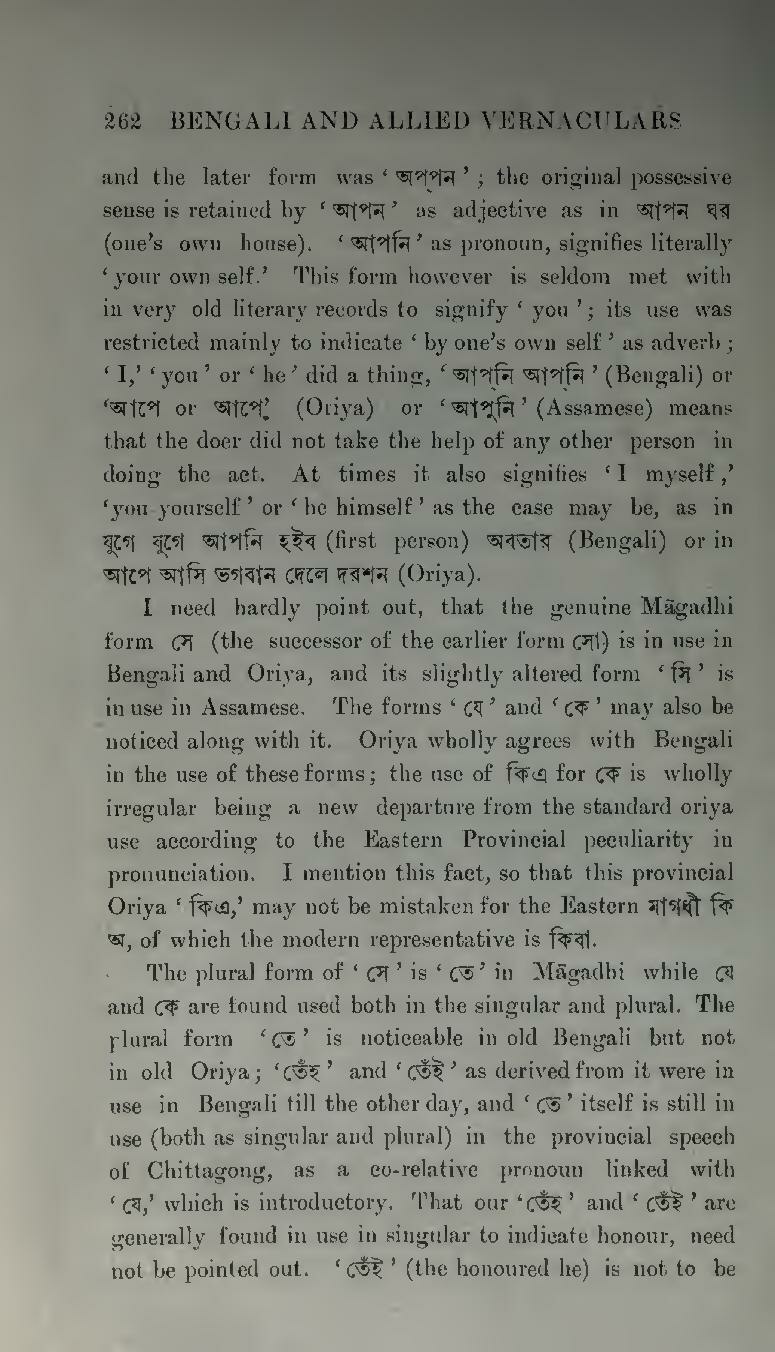and the later form was 'অপ্পন'; the original possessive sense is retained by 'আপন' as adjective as in আপন ঘর (one's own house). 'আপনি' as pronoun, signifies literally 'your own self.' This form however is seldom met with in very old literary records to signify 'you'; its use was restricted mainly to indicate 'by one's own self' as adverb; 'I,' 'you' or 'he' did a thing, 'আপ্নি আপ্নি' (Bengali) or 'অাপে or আপে' (Oriya) or 'আপুনি' (Assamese) means that the doer did not take the help of any other person in doing the act. At times it also signifies 'I myself,' 'you yourself' or 'he himself' as the case may be, as in যুগে যুগে আপনি হইব (first person) অবতার (Bengali) or in আপে আসি ভগবান দেলে দরশন (Oriya).
I need hardly point out, that the genuine Māgadhi form সে (the successor of the earlier form সো) is in use in Bengali and Oriya, and its slightly altered form 'সি' is in use in Assamese. The forms 'যে' and 'কে' may also be noticed along with it. Oriya wholly agrees with Bengali in the use of these forms; the use of কিএ for কে is wholly irregular being a new departure from the standard oriya use according to the Eastern Provincial peculiarity in pronunciation. I mention this fact, so that this provincial Oriya 'কিএ,' may not be mistaken for the Eastern মাগধী কিঅ, of which the modern representative is কিবা.
The plural form of 'সে' is 'তে' in Māgadhi while যে and কে are found used both in the singular and plural. The plural form 'তে' is noticeable in old Bengali but not in old Oriya; 'তেঁহ' and 'তেঁই' as derived from it were in use in Bengali till the other day, and 'তে' itself is still in use (both as singular and plural) in the provincial speech of Chittagong, as a co-relative pronoun linked with 'যে,' which is introductory. That our 'তেঁহ' and 'তেঁই' are generally found in use in singular to indicate honour, need not be pointed out. 'তেঁই' (the honoured he) is not to be
